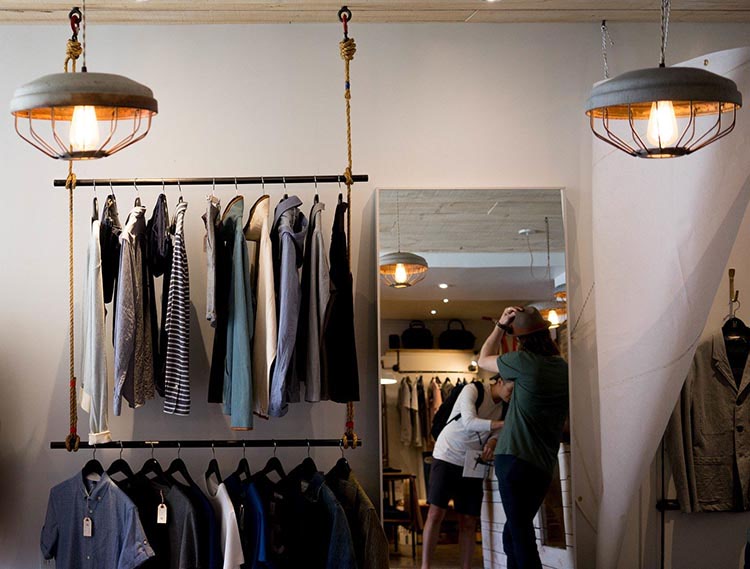Three quarters of Gen Z employees feel anxious and struggle with choosing what to wear for work each day

New research from @MilkroundOnline, the UK’s leading graduate job board, reveals that almost two thirds (65%) of #GenerationZ (18-22 years old) feel judged based on their appearance at work, and more than a third (36%) actively worry about being ridiculed for their clothes. This concern has not gone unfounded given that 15% have received negative comments from supposed “work friends”.
Gen Z are the generation most anxious about their appearance in the workplace. Almost three quarters (74%) of Gen Z employees even feel stressed getting ready for work and choosing what to wear on a daily basis, compared to just 14% of Baby Boomers.
Judgement day
Not only do dress codes cause stress for Gen Z employees, but nearly half (40%) think that they actually increase the likelihood of being judged by appearance rather than performance – defying their original purpose.
This is seen in the day-to-day, but mostly when it comes to interviews. Nearly half of Gen Z employees (43%) felt they missed out on landing a job based on what they wore to an interview. HR teams and senior decision makers mirror this thought-process, as 75% admit they would write someone off for a role based on how they were dressed at interview stage.
Financial challenges
Office dress codes are intended to provide a useful guide to employees, but instead this has resulted in financial anxiety as well. The average Gen Z employee spends approx. £1,189.20 a year on work clothes to keep up with office standards. They’re spending significantly more than their older colleagues, a shocking 160% more than the ‘Baby Boomer’ generation, who spend just £457.20 a year.
The pressure to look your best at work has created a wider issue, where 70% of Gen Z have bought clothes for work and returned them to the store after use; 21% admit to doing this regularly.
Social media stress
Social media life through a camera lens and ‘doing it for the Gram’ is having a negative effect on Gen Z interview stages too. An employer can find out a lot about a candidate before they even meet them, with 82% of employers saying they check profiles pre-interview and judge candidates before they have even walked through the door. Seemingly un-wise to the common practice, only 47% of interviewees filter their internet presence before they interview, with half (54%) believing their feeds should not be judged.
Georgie Brazier, Graduate Jobs Expert at Milkround said: “An alarming amount of Gen Z’ers are feeling increasingly stressed about their physical appearance in the workplace. These feelings are then heavily compounded by issues around budget and judgement from employers, alongside pressures from social media.
“While it’s great to see that retailers include affordable work wear sections in-store to help, the financial issue remains with many spending more than £1000 a year on clothes purely for work and there are many who just can’t afford the luxury of a new outfit for a job interview. We are seeing younger employees being judged by their appearance, which does affect their career prospects and puts Gen Z under mental and financial stress. We urge employees to not focus on the superficial qualities and look for the value a candidate can bring. You’ll end up hiring additional talent, and they’ll be more productive.”
Zara McDermott, comments on the research; “As a member of Generation Z, I am lucky that I am now, more than ever able to express myself though the way I present myself. Fashion, hairstyle and even makeup can be adapted to mirror how I want to look to the outside world. However, in some environments – like the workplace – people judge others that choose to express themselves through these means and this has happened to me whilst in my work in the government and still now in a more creative medium.
“Throughout my time working in Government, I was cautious about ensuring everything I wore was appropriate for the workplace. This often caused me stress in the morning worry about what to wear and how I would be judged if I didn’t fit in. Milkround’s research shows that I am one of many who experience this. Over time, I realised that standing out for my performance was more important and to make sure you work hard and express your creativity through your work. By doing this, you will feel good about yourself, no matter what you are wearing.”
Councillor Tele Lawal Heaton Ward comments; “This research from Milkround is incredibly timely. I am really glad a spotlight is being shone on this issue, as this is something that I experienced when I was running to be elected an MP. One of the biggest issues when I was campaigning was how I dressed and not on the policies I was proposing. Which is not what it should be.
“We want to see more young people entering politics, but we need to change the stuffy attitude people and the media have to it and show you can still be yourself and have personality in how you present yourself where ever you work. This is a cultural and generational step that I am glad Milkround are highlighting and I am pleased to be a part of and see how we can change perceptions.”
Research: The research was conducted by Opinium on behalf of Milkround, with 2,000 respondents who are representative of the UK working population plus a boost of 500 Gen Z and 250 HR decision makers, between 21.11.2019 – 27.11.2019.












Responses